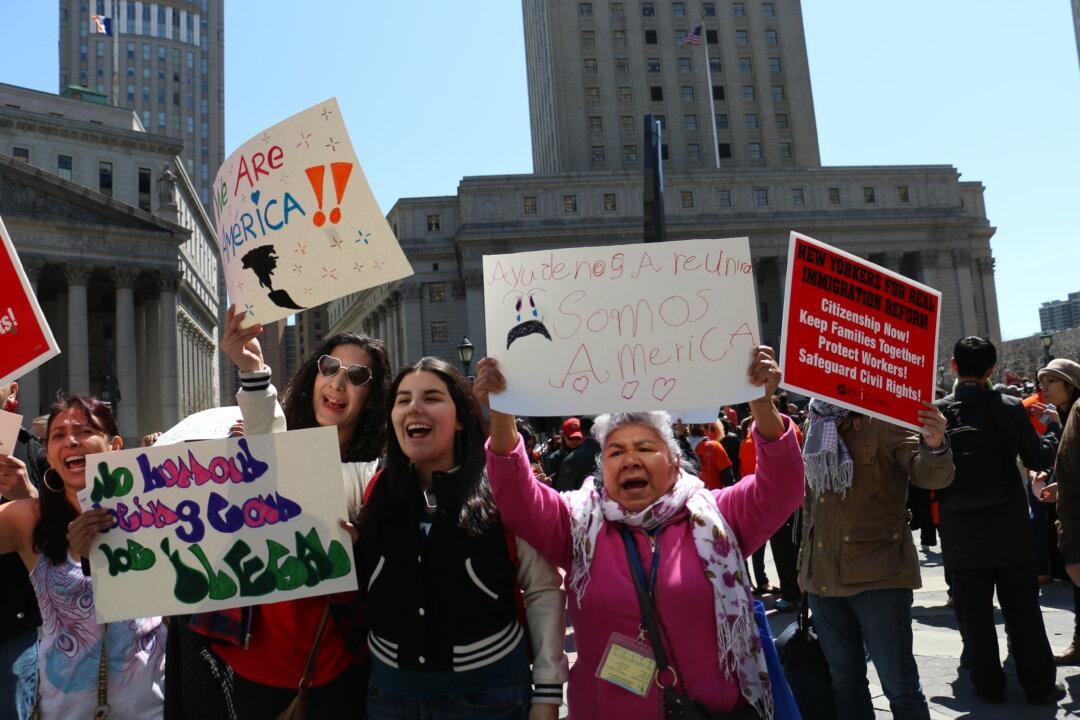Mayor Bill de Blasio is expected to convene a summit with 20 mayors around the country on Monday to discuss how to implement President Barack Obama’s newly announced temporary reprieve programs for immigrants who came into the country illegally, according to a press release from the mayor’s office.
On Nov. 20, the president laid out his latest plans to allow roughly 5 million of the country’s 12 million undocumented immigrant population to stay in the country and receive work permits. Obama said that his executive action was necessary in light of Congress’ failure to pass a comprehensive immigration reform bill.
On the same day, Mayor de Blasio announced that he and a group of mayors would meet at Gracie Mansion to come up with ways to reach immigrant communities and get them signed up for the president’s programs. They would also discuss strategies to push for an immigration reform bill to get passed.
Under the president’s executive action, undocumented parents of U.S. citizens and legal permanent residents can now apply to have a work permit and stay in the country for three years. Obama also expanded a program he announced in 2012 for certain immigrants who completed their high school education in the United States and entered the country before they turned 16, known as DACA (Deferred Action for Childhood Arrivals).
In New York State, an estimated 338,000 people can benefit from the executive action, according to an analysis by the non-partisan think tank, Migration Policy Institute. It is the state with the third-most eligible population, behind California and Texas.
Cities with participating mayors include San Francisco, Atlanta, Seattle, and Dayton, Ohio. A total of 27 cities will be represented through mayors and senior officials.
Potential Challenges
Local immigrant advocacy and legal service organizations have already begun to gear up. Last Thursday, a group of organizations and the state’s Office for New Americans announced at a press conference that they would collaborate together to provide services and reach out to the immigrants who are eligible for the deferred action programs. The project is called the New York Immigrant Assistance Consortium.
They cited not only a challenge in having to assist hundreds of thousands of potential applicants, but also getting immigrants to overcome their fear of disclosing their undocumented status to government authorities.





